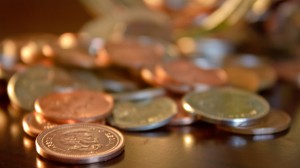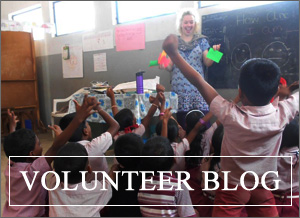Getting to your cash is a very important thing when you are travelling. Having reliable access to funds whilst you’re teaching overseas is crucial… whether that’s as trivial as enabling you to travel at weekends or whether it lets you sleep soundly knowing you can get yourself into a safe position if something unexpected occurs.
Here are some tips for first-time travellers and new volunteers heading out overseas…
Keep some money just for an emergency
In the past getting access to your money was a long and drawn out affair that required planning and forethought…
These days that’s all changed and every city and the vast majority of large towns will have an ATM or two that’s accessible 24-hours a day. Most bank cards will work fine overseas – Visa is accepted throughout the world and some ATMs will accept Maestro. Be warned – Switch does not get you far (if anywhere at all) whilst overseas!
Even if a town has an ATM of the flavour you require, you shouldn’t take that as a guarantee it will work when you need it.
You’re extremely lucky if at some point in your trip an ATM doesn’t refuse to give you cash for one reason or another. For that reason I never wait until I have no cash before trying to get more –
It’s important to keep a reserve just in case you need to keep yourself solvent for longer than you’d anticipated.
You can get cash by changing Stirling or US Dollars in most banks or at big hotels or you can use currency exchange desks / shops. I’ve only used an exchange desk once (there is no ATM on the Indian side of the Nepali/Indian border at Saunali and I needed Indian rupees to get a vehicle to the train station at Gorakhpur (which was several hours’ drive away)). Many of these desks or money changers will charge a high commission so it’s not ideal but having an emergency stash of Stirling or Dollars leaves that option open to you should you need it. It’s worth noting that many are only open during normal bank opening hours.
Some people do still use travellers cheques for their emergency reserve but you need often need a major bank within a city to change them and it frequently takes such a long time to process them that I’ve found easier to just take out USD or Stirling or Euros.
Don’t carry all your eggs on one basket
I have accounts with a couple of UK banks. I keep the credit card from one and the debit card from the other in my wallet and the other two cards I keep in my money belt. I carry cash in USD and in EUR in my money belt as well, just in case. If I’m traveling around and my room has a safe then I keep one of my cards in there too.
I try to pay for things with my credit card when I can, just so that I can hold on to my cash. Though I know other travellers who do not use credit cards unless they really have to. It is a matter of choice. But whereas almost every shop in the UK will accept cards, very few shops abroad will accept them, and often you will have no choice but to pay with cash.
Just remember to keep an eye on your online statement because card cloning is a big problem overseas. The banks are extremely good at spotting irregular activity on cards and blocking them but it’s good to keep an eye on it yourself too, just in case.
Check your cards aren’t blocked before you head overseas!
Some UK banks will block your card if you try to use it abroad (Sri Lanka in particular), unless you have told them explicitly which countries you will be going to and how long you’ll be there.
These ‘holiday flags’ can, in some cases only be applied for 1 or 3 months, so if you are abroad for longer than that, you may need to remind your bank that you are still abroad to keep your card open.
If you forget about this, or your bank doesn’t actually unblock your card for you when you asked (this happened to me), then don’t panic – there are other ways to get money with a blocked card. All major worldwide banks will allow you to withdraw funds even if you are not one of their customers!!! All you need to do is go into a bank with your passport and your card, fill in a form (or three), wait for about an hour while they scrutinise your forms and phone someone for approval. Meanwhile you can call your bank and get them to unblock your card.
Big notes are often useless
Finally, my personal money tip is to always try to break your big notes as soon as you can…
The ATM thinks a 2000 rupee note is useful. In reality, many shopkeepers won’t accept this for small purchases and bus drivers and auto-rickshaw drivers will laugh you out of their vehicle if you try to pay for a 50 rupee journey with a 2000 rupee note. Even getting change for 500 rupees in rickshaws is difficult to negotiate nevermind 2000!
You need to spot an opportunity to break big notes wherever you can and keep your smaller notes and coins for when they are needed… and believe me, they will be needed!





Comments are closed.